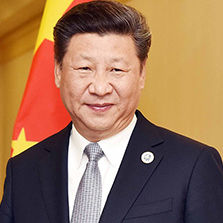
The year 2022 was marked by a slow
then rapid near-global retreat from the strictest restrictions of the Covid-19
pandemic. Restrictions on domestic and international travel were lifted
virtually everywhere, many testing prerequisites and masking mandates eased and
even some vaccine requirements were dropped. After the Covid-19 virus evolved
into the extremely contagious but less lethal omicron variant, most of the
world made the collective decision to live with what seems to be an endemic
virus.
There is one massive, gleaming
exception to all of the above: the People's Republic of China, which under
leader Xi Jinping until very recently had maintained strict procedures of
relentless testing, mass quarantine, citywide lockdowns and deeply restricted
international entry under what is known as the country's "zero Covid
policy."
That policy devastated the whole
notion of international business travel to China. Would-be inbound travelers
still are required to quarantine for 10 days, and even then would have to deal
with limited domestic travel, restrictions on entry to businesses or other
establishment, all under the threat of sudden lockdown.
Some industry experts at one point
suggested China would be unwilling to risk a competitive economic disadvantage
when other countries in Asia began allowing less restricted international
travel, but that proved not to be the case. Xi's commitment to the zero-Covid
policy—and, perhaps, the notion that China had successfully mitigated the virus
in a way the rest of the world hadn't—outweighed any pressure to keep up with
the international community.
But that might be changing. After
rounds of protests that began in November following another spate of citywide
lockdowns and movement restrictions—the most significant demonstrations in the
country, to some eyes, since the 1989 Tiananmen Square protests—the federal
government on Dec. 6 suddenly dropped several key tenets of zero-Covid policy.
Some testing requirements were dropped, at-home quarantine in some cases was
permitted and some checkpoints were dismantled.
It remains to be seen whether the December
change of course is the first step toward bringing China back to 2019 levels of
sanctioned international business travel and an approach to Covid-19 more in
line with the rest of the world. But it seems at least that China has passed
its zero hour.